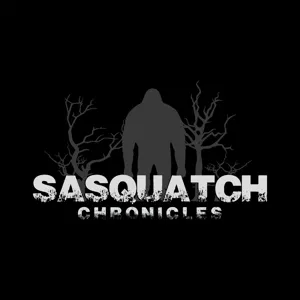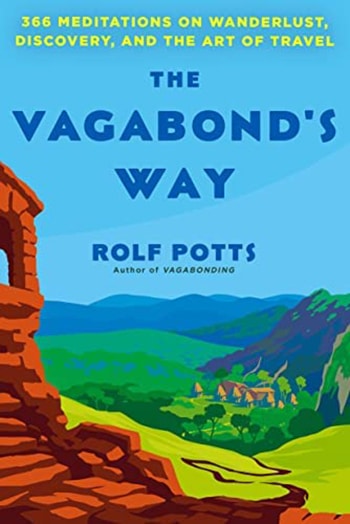Podcast Summary
Science and Religion: A Complex History of Intersection: Historically, science and religion have intersected, with religious institutions contributing to scientific advancements such as the correction of the Julian calendar through the Vatican Observatory.
Science and religion, two seemingly disparate domains, have a rich and complex history of intersecting with each other. This was explored in a recent episode of StarTalk, where renowned evolutionary biologist Richard Dawkins, an outspoken atheist, was interviewed alongside Father Martin, a Jesuit priest with a business degree. Contrary to popular belief, Father Martin highlighted the scientific contributions of the Jesuits, including their role in the measurement of the universe leading up to the Gregorian calendar. The Julian calendar, which was used until 1582, had an issue where it accumulated extra days over time due to the incorrect calculation of a leap year. The Jesuits, under the guidance of Pope Gregory, helped solve this problem by founding the Vatican Observatory and identifying the need to remove 10 days from the calendar every century to correct the error. This historical collaboration between science and religion demonstrates that these two spheres are not mutually exclusive, but rather have the potential to inform and enrich each other.
The importance of the leap year in maintaining an accurate calendar: The leap year, adding an extra day every 400 years, is crucial for calendar accuracy. Our brains may not be wired for logic, but a balance between logic and instinct can lead to success.
The calendar we use today, the Gregorian calendar, is a carefully calculated system that ensures accuracy over long periods of time. Every century year is not a leap year, but every 400 years, an extra day is added back to keep the calendar in sync. This system, which might seem illogical at first, is essential for maintaining an accurate calendar. Another interesting topic that was touched upon was the capacity of the human mind for logical thinking. Richard Dawkins, an outspoken advocate for atheism and logical thinking, discussed how our brains might not be wired for logic as one might assume. Despite this, many people manage to get along just fine in life without being logical all the time. The Pope, a Jesuit and a scientist, was brought up as an example of someone who can think logically, but the question was raised whether illogical thinking might have its uses, especially in survival situations. The discussion ended with the idea that a balance between logic and instinct might be the key to success in life.
The overlap of logic, experiences, and emotions: Experiences and emotions can lead us to believe or act in ways that don't align with logic, but this doesn't make them inconsistent. Science and religion can intersect and evolve together, leading to transformative discoveries and understandings.
While it's important to be logical and rational in our thinking, there are times when our experiences and emotions, such as falling in love or having a spiritual moment, may lead us to believe or act in ways that don't align with logic. This doesn't make these beliefs or actions inconsistent with logic, but rather an overlap of different ways of knowing and understanding the world. This was a theme that emerged in a discussion about the compatibility of science and religion, where it was suggested that people's experiences of God and their desire to understand the natural world can lead them to pursue degrees in science and hold religious beliefs. The ongoing evolution of these fields and the openness of individuals like Pope Francis to explore their intersections can lead to a transformative time for the Catholic church and our understanding of the relationship between science and religion.
Respecting Unique Spiritual Journeys: Respect individual spiritual paths and beliefs, embrace openness to deeper connections, and acknowledge the importance of competence in professionals.
Everyone's spiritual journey is unique, and it's essential to respect each other's beliefs and ways of connecting with the divine, even if they don't align with our own. The speaker emphasized that having a spiritual experience doesn't mean one has to adopt a specific set of rules or beliefs, but rather an openness to the possibility of a deeper connection with the universe and the divine. The comparison of a spiritual director to a science teacher underlines the importance of starting from a place of understanding and respect, rather than imposing a rigid belief system. The speaker also highlighted the importance of competence in professionals, regardless of their personal beliefs, but acknowledged the potential impact of those beliefs on trust and effectiveness in certain contexts.
Beliefs in Science and Religion Can Overlap: People can hold seemingly contradictory beliefs in science and religion, finding comfort in the mysteries and not requiring a clear-cut explanation
The boundaries between science and religion do not have to be rigidly defined. People can hold beliefs that seem contradictory from an external perspective, but for them, these beliefs may not be in conflict. For instance, some individuals may identify as evolutionary biologists during the day but hold religious beliefs that contradict scientific evidence at night. This paradoxical belief system doesn't necessarily require a clear-cut explanation, and individuals may find contentment in not fully understanding the mysteries of both science and religion. The mysteries of the universe, such as those found in quantum physics, do not inherently require a deity to oversee them. Instead, they can coexist as intriguing phenomena that challenge our understanding and deepen our sense of wonder.
Science and wonder can deepen each other: Understanding scientific explanations can enhance awe and wonder, and science and spirituality can complement each other. Open-mindedness and respectful dialogue are essential for people of different beliefs.
Science and wonder can coexist, and each can deepen our appreciation for the other. Neil deGrasse Tyson and Father James Martin discussed their perspectives on this topic, emphasizing that understanding the scientific explanations behind natural phenomena does not diminish the sense of awe and wonder they inspire. In fact, as Tyson argued, it can enhance that feeling. They also acknowledged that people may hold different beliefs and interpretations when it comes to God and religion, but these differences should not prevent individuals from experiencing a connection to the divine or the universe. Both speakers agreed that science and spirituality can complement each other, and they encouraged open-mindedness and respectful dialogue between people of different beliefs.
The Complex Relationship Between Science and Religion: Religious beliefs can inspire scientific exploration and understanding of the natural world, but not all religious beliefs are compatible with scientific inquiry. Some scientists hold religious beliefs, while others are critical of them.
The relationship between science and religion is complex and nuanced. While some argue that religious beliefs can lead to fanaticism and fundamentalism, others see religion as a source of inspiration for scientific exploration and understanding of the natural world. Newton and Galileo, for instance, were religious men who saw the study of God's creation as a worthy pursuit. However, not all religious beliefs are compatible with scientific inquiry, and some scientists, like Richard Dawkins, are critical of religious beliefs that involve supernatural elements. Einstein, for his part, used the term "God" metaphorically to refer to the laws of the universe, but this interpretation is not universally accepted. The idea that a significant number of scientists hold religious beliefs is a fact, but the nature and extent of their religious commitment is a subject of ongoing debate.
Religion and Science Coexist: Religious individuals can embrace scientific discoveries without conflicting with their faith. Most religions do not require denial of scientific facts. Atheists aim for acceptance in society and face discrimination.
Religion and science can coexist, and religious individuals can embrace scientific discoveries about the natural world without conflicting with their faith. It's important for religions not to resist scientific findings but instead see them as a means to deepen their understanding of God and the world. Some people may struggle to accept evolution as part of their religious beliefs, but most religions do not require the denial of scientific facts. Additionally, there is a societal bias against atheists, and they face discrimination, particularly in politics. Atheists aim to challenge this discrimination and be accepted as equal members of society, regardless of their beliefs. It's essential to recognize that everyone, regardless of their religious or non-religious beliefs, should be treated with respect and equality.
Labels can lead to discrimination and bias: People should be judged based on actions and beliefs, not labels. Science and religion can coexist, and open-minded conversations without preconceived notions are crucial.
Labels, including religious ones, can lead to discrimination and bias against individuals. This was discussed in relation to the experiences of religious people being perceived as uneducated or even idiots. However, it's important to remember that people should be judged based on their actions and beliefs, rather than their labels. As one speaker noted, they identify as a scientist first and foremost, and encourage open-minded conversations without preconceived notions. Additionally, science and religion can coexist, as demonstrated by historical examples of religious figures contributing to scientific advancements. Ultimately, it's crucial to approach discussions with respect and a willingness to learn from one another.
Perspectives on the Universe: Science vs Theology: Both science and theology offer intriguing questions about the universe and its origins. Science might ask why the universe appears to lack a creator, while theology might question why we insist on understanding everything. Ultimately, the concept of an uncaused cause, or God, remains a logical possibility.
Despite the ongoing debate between science and theology on the existence of God or a higher power, both perspectives offer intriguing questions and possibilities. If we consider the universe as a science project of a hyper-intelligent species, how would we distinguish it from God? Richard Dawkins, for instance, might ask God why it created a world that suggests its absence. Alternatively, God might ask us why we insist on understanding everything, rather than believing in something beyond us. Both perspectives raise thought-provoking questions about causality and the nature of existence. Ultimately, the universe may not be obligated to make sense to us, and the concept of an uncaused cause, or God, remains a logical possibility for some.







